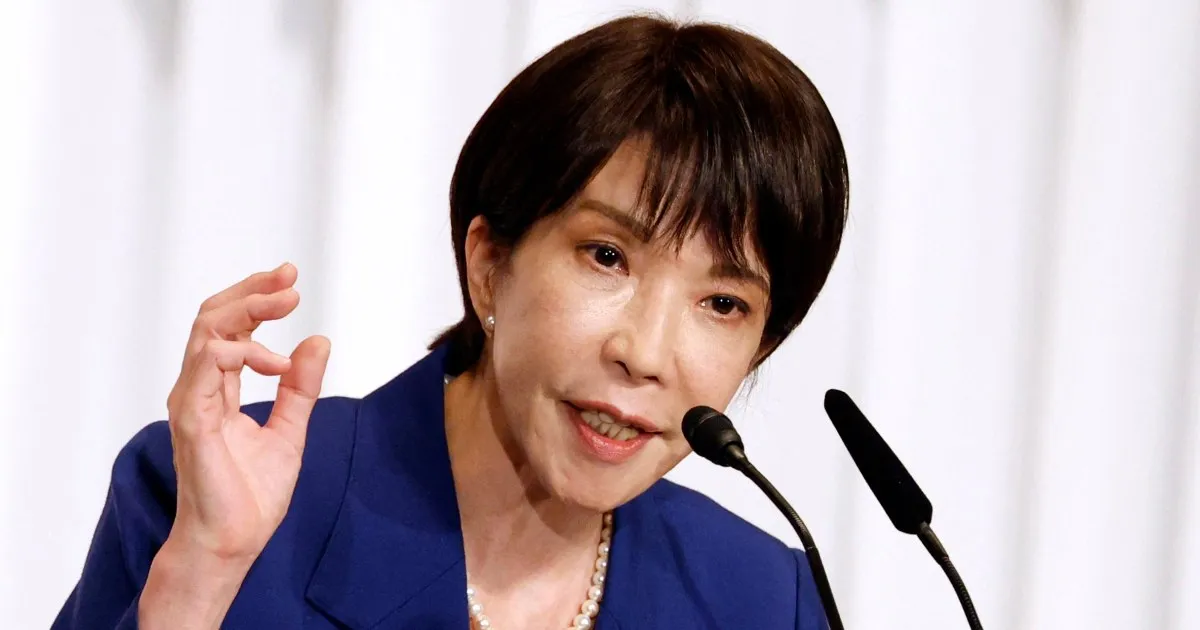
On October 4, 2023, Sanae Takaichi emerged victorious in a significant political contest, positioning herself to potentially become Japan's first female prime minister. This milestone in a predominantly male-dominated political landscape is reminiscent of her idol, former British Prime Minister Margaret Thatcher. Takaichi's unexpected triumph could have substantial implications for investor confidence in one of the world's most heavily indebted economies, but her nationalistic stance may also heighten tensions with neighboring China, as political analysts suggest.
Having previously lost a run-off to Shigeru Ishiba for leadership of the Liberal Democratic Party (LDP), the 64-year-old Takaichi is now poised to seek parliamentary approval to replace Ishiba as prime minister. While the LDP holds a majority in parliament, recent election losses have left the ruling coalition without a definitive majority in either house, casting uncertainty on her confirmation. One of her initial acts as leader is expected to be hosting former U.S. President Donald Trump during his visit to Japan later this month.
In a speech delivered to her fellow LDP lawmakers following her victory, Takaichi expressed a sense of determination rather than relief, stating, "I feel like the tough work starts here." As a former Minister of Economic Security and Interior, she has often cited Thatcher as a source of inspiration, admiring her strong character and unwavering convictions, which she balances with a sense of warmth. Takaichi met the iconic leader at a symposium shortly before Thatcher's death in 2013, further solidifying her admiration.
Known for her nationalist views, Takaichi frequently visits the Yasukuni shrine, a site that honors Japan's war dead, including controversial figures from its militaristic past. This practice has drawn criticism from neighboring Asian countries. Advocating for a revision of Japan's pacifist postwar constitution, Takaichi supports recognizing the role of Japan's expanding military capabilities. Additionally, she has suggested the possibility of forming a quasi-security alliance with Taiwan, an issue that could exacerbate tensions with China.
While Takaichi has committed to increasing the number of female cabinet ministers—a sector where Japan has lagged behind its G7 counterparts—her conservative stances tend to resonate more with male constituents. Her opposition to same-sex marriage and the idea of allowing married couples to retain separate surnames reflects a disconnect with broader public sentiment, particularly among women. However, it is her economic policies that may generate the most significant impact in Japan's political landscape.
A close ally of the late Shinzo Abe and a long-time advocate of his Abenomics stimulus policies, Takaichi has called for increased government spending and tax cuts to alleviate the rising cost of living. She has also criticized the Bank of Japan's move to raise interest rates, suggesting a need for a more accommodating fiscal approach. Takaichi's background is equally compelling; her mother served as a police officer in Nara, Japan, while her father worked in the country's crucial automotive sector.
In a recent address, Takaichi highlighted her concerns over tourists disrespecting sacred deer in Nara Park, vowing to address such issues amid growing public scrutiny of foreign visitors. These remarks resonate with voters as Japan experiences an influx of migrants and tourists. A graduate of Kobe University with a degree in business management, Takaichi began her political career as an independent candidate, securing a seat in the lower house in 1993 before officially joining the LDP in 1996.
As the world watches, Sanae Takaichi is set to navigate the complexities of Japan's political environment, balancing economic reform, national security, and the pursuit of gender equality in governance.